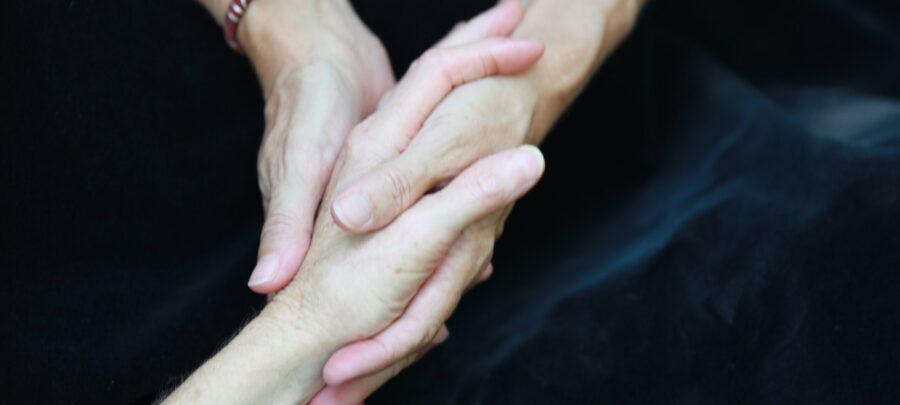“There ought to be another word for what you do.”
This comment came from a Rabbi in his late 70’s who received a massage as a hospice patient several weeks before his death. He’d received a number of massages in his life, he said, but when massage was offered to him at the hospice inpatient unit, he almost declined the service. His terminal diagnosis of bone cancer had resulted in several spontaneous fractures; in other words, fractures which occurred in bed, simply while rolling over or propping himself on an elbow. “I couldn’t imagine that massage wouldn’t be painful or dangerous,” he said. But he took a chance and consented to the service, because he was desperate for relief from his pain and his nurse urged him to give massage a try.
So he did. And now with tears in his eyes, he tried to express how moved he felt by the tenderness of the touch he was experiencing. “There ought to be another word for what you do, because this isn’t like any massage I’ve ever received,” he said. It wasn’t the first time this sentiment had been communicated to me.
Patients who have suffered to an extent that few of us can imagine, and families who are understandably protective of their suffering loved ones, are often reluctant to receive “massage.” The word conjures assumptions about a kind of touch that would be unimaginable in their current condition. After I introduce myself as the massage therapist, and after I share that we offer massage to all of our patients on the unit, I’m always hopeful that an opening will remain for me to describe these services: very gentle, fully clothed, in a hospital bed, no repositioning necessary, more like “light lotioning,” more like an “anointing,” more like . . . I still struggle to find words for what I do.
When patients and families remain open to hearing what I’m trying to say, I can go on to explain what the session might look like. It might be holding a person’s hand while gently applying lotion to the skin. It might be light caress to the head and forehead. It could be a gentle foot rub, or a shoulder rub, or a combination of any of the above. I might even demonstrate the pressure of this touch on a family member’s arm or shoulder. And I always invite the family to remain in the room, to help me watch for signs that their loved one is enjoying the session. If not, I assure them, I stop.
But some people in their fatigue and suffering can’t remain open to hearing what massage might look like at this point. And then I have to accept that massage isn’t right for them in that moment, or maybe ever. I wish sometimes that there were another word for what we do. Because what we do isn’t like any other massage that people will have likely received. I’ll keep searching for better words, and in the meantime remain mindful that sometimes there are no perfect words. We show up with the words we have and we enter this holy work whenever there are receptive openings.
Shared by: Cindy Spence

